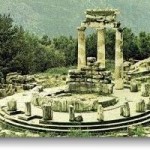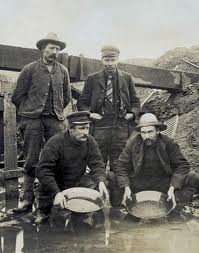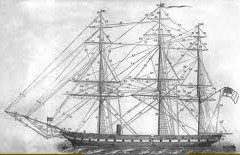Our language is evolving and new words (neologisms) are being added to the dictionary in greater numbers than ever before, and yet we continue to use sayings from long ago–their original meanings lost in the annals of history.
Here’s a few common sayings we still use today.
Don’t kick a man when he’s down:
-
In 555 AD, a disgraced general named Belisarius was stripped of his rank, command, and wealth on charges of crimes against Rome. If that wasn’t bad enough ol’ Belisarius became blind and began begging. In those days, people gave beggars a swift kick when they passed—to which the once esteemed leader would reply, “Don’t kick a man when he’s down.” His frequent retort—all the more impressive when his identity was revealed—quickly spread throughout the empire. No doubt he earned more money this way, too.
 Don’t give a damn: No, this phrase was not coined by Rhett Butler but has ancient origins. The damn is a Hindu coin that had a tendency to vary in value. When it plummeted, the Brits—who occupied India at the time—took to describing something of little worth this way.
Don’t give a damn: No, this phrase was not coined by Rhett Butler but has ancient origins. The damn is a Hindu coin that had a tendency to vary in value. When it plummeted, the Brits—who occupied India at the time—took to describing something of little worth this way.
It’s raining cats and dogs:
-
This comes from the Norse god Odin whose dog took the form of wind. (My dog only passes wind). When Odin’s dog ( the wind) chased a cat (rain) ancient Celtic people said Odin was dropping cats and dogs from the sky.
-
Another possibility: During the Middle Ages roofs were made of straw. Dogs (used for hunting and protection) and cats ( to keep the mice population at bay) found warmth on the rooftops. A few good rainstorms—and bam! The straw was soaked through and cats and dogs were raining down.
Dog days of summer:
-
In Roman times, Sirius—the dog star—is brightest from the beginning of July until mid August AND rises with the sun! The hot months, therefore, were attributed to the star’s brightness.
 Leave no stone unturned: If you were an ancient Greek and wanted an answer to an important question, you paid a visit to the Oracle at Delphi—a hotline to the gods. One fine day, Euripides asked the Oracle where to find the treasure left by a certain general-on-the-run. The Oracle’s advice to the treasure-seeking Euripides was “to leave no stone unturned.”
Leave no stone unturned: If you were an ancient Greek and wanted an answer to an important question, you paid a visit to the Oracle at Delphi—a hotline to the gods. One fine day, Euripides asked the Oracle where to find the treasure left by a certain general-on-the-run. The Oracle’s advice to the treasure-seeking Euripides was “to leave no stone unturned.”
Won’t hold water:
-
Those wacky Romans! They expected their Vestal virgins to remain virginal. One day, Tutia—one of the original Vestals—was accused of…well, you know. To prove her virginity, Pontifex Maximus insisted she carry a sieve ( a strainer with holes) of water from the Tiber river to the Temple. If the water escaped she would have to face a nasty punishment—being buried alive. Tutia passed the test. Whew!
 The Lion’s share: This phrase comes from Aesop’s fables. Seems the lion and a bunch of his animal BFFs went hunting one fine day. When it came to share the booty, the lion, as king of the beasts, claimed the 1st, the 2nd, and 3rd parts for himself. Then the clever lion declared that anyone who wanted to dispute him for the 4th part was welcome to it. Nobody volunteered. Who wants to fight a lion?
The Lion’s share: This phrase comes from Aesop’s fables. Seems the lion and a bunch of his animal BFFs went hunting one fine day. When it came to share the booty, the lion, as king of the beasts, claimed the 1st, the 2nd, and 3rd parts for himself. Then the clever lion declared that anyone who wanted to dispute him for the 4th part was welcome to it. Nobody volunteered. Who wants to fight a lion?
Piping hot
-
This descriptor has its roots in the bakery biz. In times of yore, the village baker blew a pipe announcing that fresh bread had just been pulled from the oven. The villagers, upon hearing the loud nose, came a runnin’ to buy the fresh loaves.
Make no bones about it
- We’re used to having our chicken and fish de-boned, but years ago diners had to be very careful when they ate. If the hungry person de-boned their meal carefully they could dig into the pile of protein with gusto–with nary a worry about choking on a bone.
Down in the dumps
- This history behind this saying is just too circumspect to be true. Seems an ancient Egyptian pharaoh named Dumpos died from depression. Anyone who suffered from the king’s ailments was said to have come down with Dumpos’ disease.
Hit a snag
- A lumberjack’s term, this phrase meant the logs floating down the river were being held up by a tree trunk (snag) stuck into the river.
 See how it pans out
See how it pans out
- From the gold-panning days of yesteryear, this expression was coined by those who hoped gold flakes would be revealed after they shook the sand from the pan.
 Know the ropes
Know the ropes
- If a seaman didn’t the know the difference between the various ropes and rigging of a sailboat or how to handle them, he would be assigned to menial tasks. So if a sailor wanted to a better position he had to “know the ropes.”
Rigamarole
- Ragemane rolle is a scroll used in a medieval game of chance.
Called on the carpet:
- When railroad was king, the big railroad bosses had elegant and luxurious offices–you know, the kind with carpet! When a misbehaving employee did something bad, the Big Boss summoned them to their carpeted office for a scolding.
What weird and wonderful sayings will our great great grandchildren use in a few hundred years?
Related Posts:History Of Common Sayings 2, Stupid Sayings; Vatican Vocab; Vatican Vocab 2















